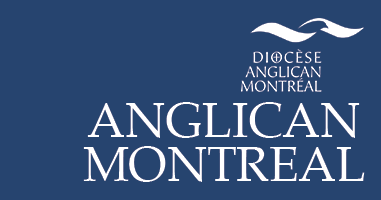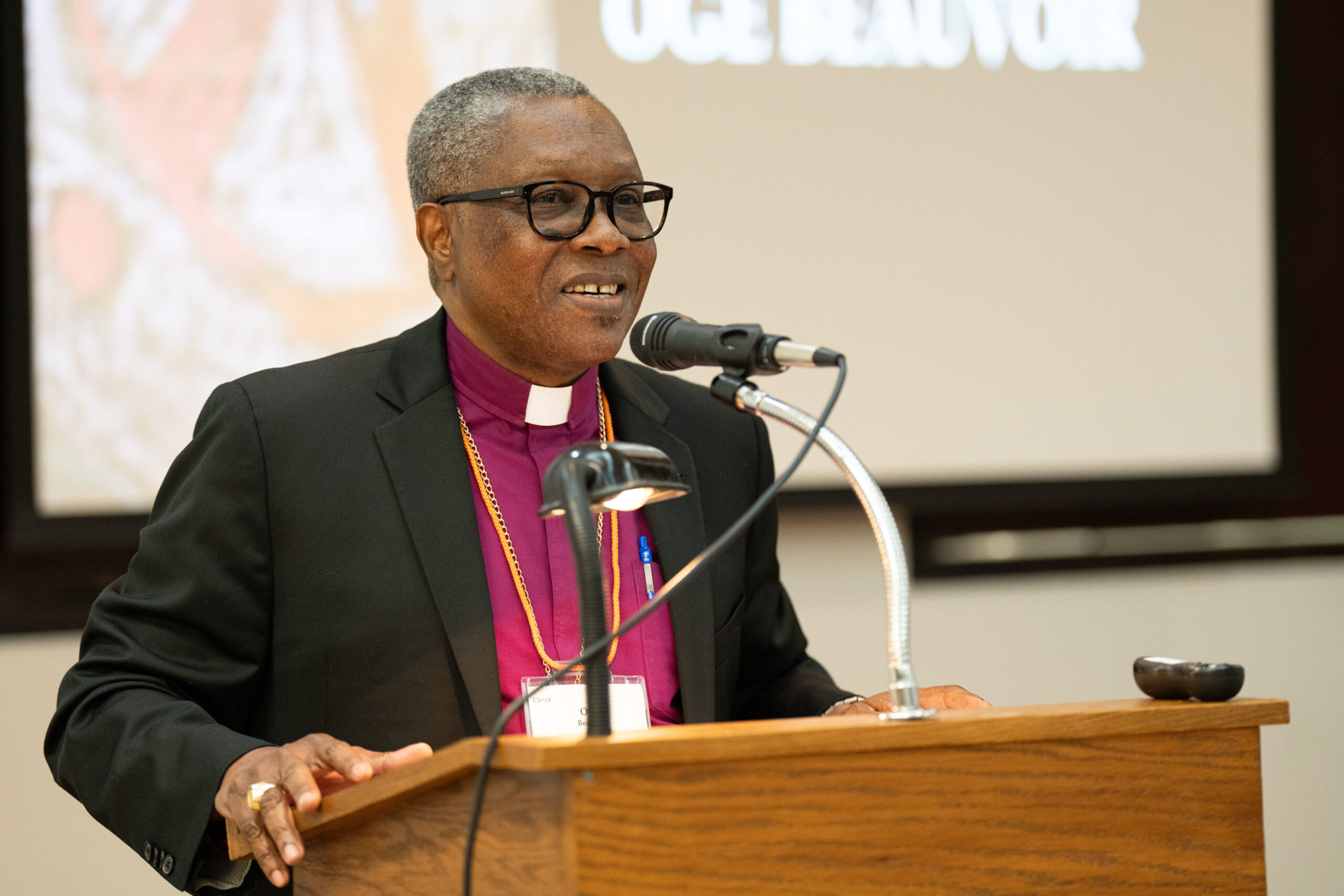The 164th Diocesan Synod took place in Christ Church Cathedral on Saturday, June 17th; the day opened with worship, followed by Bishop Mary’s charge.
The Bishop’s Charge
In her charge, Bishop Mary acknowledged that the pandemic and its aftermath left a mark on our diocesan family, and that parishes have recovered – or are still recovering – at varying speeds. “Our diocese continues to evolve and change and that can be a bumpy road at times…. Yet, wherever there are disciples of Christ, followers of the Jesus way, there ought to be some kind of ministry taking place for the glory of God.
She continued to share what she – and her fellow bishops at last year’s Lambeth Conference – sees as the challenge to today’s church; “What is very clear is that we are no longer called to serve only those who are already Anglicans and from our particular tribes and languages!” She said “Too often the church has been content with nominal Christians, people who have not really engaged in learning and relearning how to follow Christ. The Lambeth Call on Discipleship notes that some Christian commitment is one mile wide and one inch deep!”
Bishop Mary continued, “This past year, the Anglican Church of Canada developed Five Transformational Aspirations as part of its strategic planning initiative and these will be presented at General Synod, which meets in Calgary at the end of this month. I commend them to you as spiritual practices as we seek to train our lives as Christ’s disciples. In all that we do, we can look at whether the following apply:
- Invites and deepens life in Christ
- Champions the dignity of every human being; works to dismantle racism and colonialism
- Embraces mutual interdependence with the Indigenous church (Sacred Circle)
- Nurtures right relationship among people of faith in local, national and global communities and networks
- Stewards and renews God’s creation: protects and sustains the earth; pursues justice for all
This year I want to invite everyone to join me in a year of spiritual renewal, of intentional discipleship, of deepening our commitment to Christ, and of discerning ways to reach out into God’s world in his love. I want to challenge everyone to take on one spiritual renewal activity in your parish – and invite me to attend!”
(For the complete charge, in both languages, go to www. montreal.anglican/synod.)
Synod Presentation- Racism- Listening, Naming: Reconciling
Bishop Ogé began with a video clip of two young children of different ethnicities embracing and then shared his experiences of racism and discrimination, from his early childhood in Haiti to the present day.
During his early years as a priest in this Diocese he experienced racism but was able – through talking with those who discriminated against him – to build positive relationships.
Bishop Ogé concluded with suggestions for parishes to fight racism:
- Teaching is the key; encourage children to enjoy differences
- invite people from your neighbourhood to suppers,
- encourage inter- racial groups,
- work with other churches,
- get local politicians to speak out against racism while keeping them accountable.
As individuals we cannot say racism doesn’t exist, we cannot ignore it, we need to be the light and salt in the world, we cannot let racism take over the Gospel of Jesus Christ.
Canonical Changes on Racial Diversity
The proposed Canonical Changes come out of the work of the Anti-Racism Task Force. All amendments were ultimately voted on and accepted.
The first amendment is an update to the Canon on electing a bishop, adding changes to create a more diverse membership on the search committee.
A new subsection is to be added under “Nominations for Bishop” encouraging a wider range of diversity in nominations.
The next section included amendments to the Constitution. The first includes increasing the number of additional members of Synod as elected by Diocesan Council from five to seven and also work at increasing diversity among those selected to better reflect the composition of the Diocese.
The final amendment tasks the Nominating Committee to aim for a diversity of candidates for all Diocesan committees. The Rev. Deborah Meister suggested a friendly amendment, adding “economic status” to the list of criteria for diversity, which was accepted.
Fossil Fuel Motion
Mr. Mark Gibson, Chair of the Stewardship of the Environment Committee and Mr. Ross Hamilton, spoke to the motion, which encourages all Parishes to move away from fossil-fuel heating sources in all church buildings, in order to eventually reach a goal of zero GHGs by 2030. All Parishes, their parishioners and neighbours should also be actively encouraged to move towards making these changes.
The motion was voted upon and carried.
Finance Presentation
Ms. Laura Prince expressed gratitude to all those who had assisted her in her first year as Treasurer.
In introduction, Ms. Prince highlighted some of the many important functions and services provided by the Synod Office. She noted that the Diocese has various sources of income that support ministry.
Investment losses were down by 10%, with an overall operating loss of 350K. Revenues are gradually increasing although investment income is down but stable. Receivables in 2022 were at their highest in recent years. Market value of investments is down.
The forecast for 2023 was for a 323K loss. With revenues and investment income down we are now looking at a net loss of 408K at year-end.
The Treasurer presented the Budget for 2024. It is relatively the same as 2023 with no overall increases expected. Ground rent is fixed and does not increase from year to year. The loss from operations is estimated at 335K.
The budget was voted upon and approved.
Motion from the Floor on Multicultural Awareness/Anti-Bias Training
The Rev. Deborah Meister spoke to the motion to “welcome one another as Christ has welcomed you”. The Anti-Racism Task Force wishes to equip Clergy and Lay Leaders by offering mandatory training in multicultural awareness and an anti-bias posture. The motion seeks to implement a course as a prerequisite for all those in leadership and open it to all members of the Dioceses. A refresher course would be required, every 3 years.
The Rev. James Pratt noted that grace will be employed in being flexible in allowing people time and opportunity to complete the training course.
The motion was voted upon and carried.
Q&A with Bishop Ogé Beauvoir- Facilitated by the Rev. Canon Dr. Neil Mancor
Canon Mancor opened the floor for questions from delegates, expressing that this had been a wonderful Synod with so much inclusion. He asked Bishop Ogé to elaborate more on his comments about the relationship between racism and discrimination.
Bishop Ogé answered that racism becomes concrete through the application of discrimination. They are one coin with two faces; discrimination is putting into practice racist thoughts.
Canon Mancor asked Bishop Ogé to expand a bit more on the interesting stories of his childhood.
Bishop Ogé shared about his leaving the countryside at age 5 and how his faith had helped him move forward. He was not distracted from his mission to do the work he was there to do, which, at that time, was to get a good education. He has followed these principles throughout his life.
The Rev. Graham Singh asked how the downtown deanery churches can reach out to serve the wider community and multicultural groups and how do they go about having bigger conversations?
Bishop Ogé answered that we need to take risks in doing mission, and change the way we do mission. The field is out there, it is open to us. What are we doing to make people feel welcome? It is challenging, we need to meet people where they are and offer unity not uniformity.
Ms. Danica Meredith asked Bishop Ogé to offer his wisdom as to how to do “hospice care” for what we are leaving behind as we take risks and move into new areas.
Bishop Ogé responded that we need to find help along the way and look to where we want to go. We can use the skills we have, once we know where to go with them, in making choices, taking risks and being missional.
The Rev. Steven Maki asked for guidance on allowing communities of faith to be more open. His Parish is using English prayer books and English songs. These are very beautiful but how can they offer worship that would be relevant to the African students who attend their church?
Bishop Ogé recommended the model being used at the Church of St. Mark and St. Peter (CMP) and the need to learn from one another. Bishop Ogé took a group from St. Paul’s Church to visit CMP to experience a different style of worship
Canon Mancor asked the Rev. Fresia Saborio to share how she responds to the multilingual needs of the church she pastors in Granby. She suggested finding out the needs of the African students, how they worship and what they want rather than working top down.
The Rev. Graham Singh spoke about the theory of “Missional Distance.” This theory looks at our church community in terms of concentric circles, with ‘us’ at the centre, and those least like us on the periphery, with gradations of similarity in between. We have to grapple with these tensions especially when encouraging people to look towards Ordination, otherwise we end up ordaining the same sorts of people.
Mr. Mark Gibson noted that we need to remember our mission to the people around us. He recommended a course from Kairos on this topic.
Bishop Ogé concluded with a final word- “when you leave your comfort zone be prepared to be challenged”.
Update from Anti-Racism Task Force
Mr. Dion Lewis and Mr. Edward Yankie, Co-Chairs of the Anti-Racism Task Force, gave an update on its work over the past year.
Mr. Lewis noted workshops and resources have been offered by the Task Force, they have brought motions to this Synod, they are collaborating with other groups in the Diocese, and with community organisations. A lot of work is being done.
Mr. Lewis encouraged Members to read the Anti-Racism Task Force report in the Convening Circular and, as individuals, to speak out against racism in our communities and work at promoting these principles.
Mr. Yankie said the proposed anti-bias training will be of great value to us in reaching our goals. We need to make reparations for past injustices and continue learning. He thanked those in leadership and many others for helping the Anti-Racism Task Force in its mission.
Synod 2024 will be a Conference Synod – June 6th, 7th & 8th.


